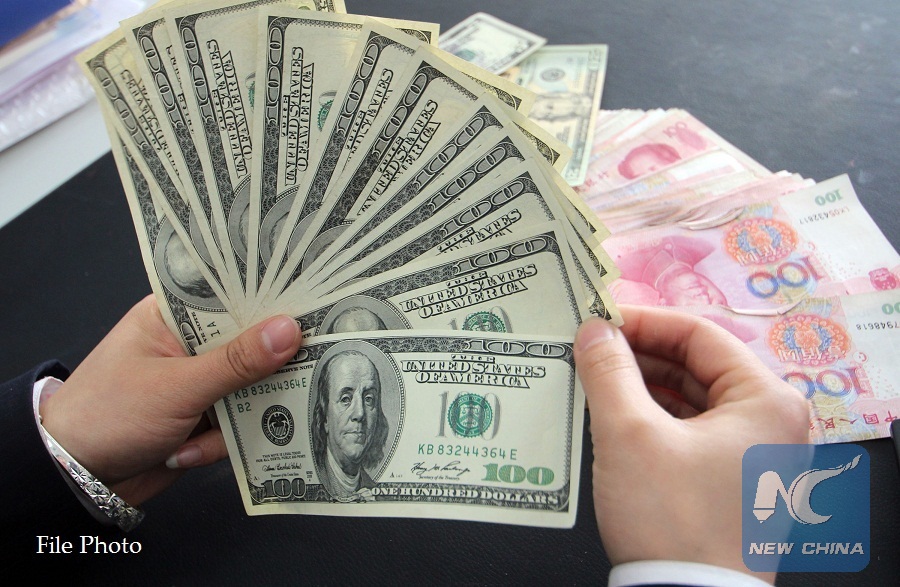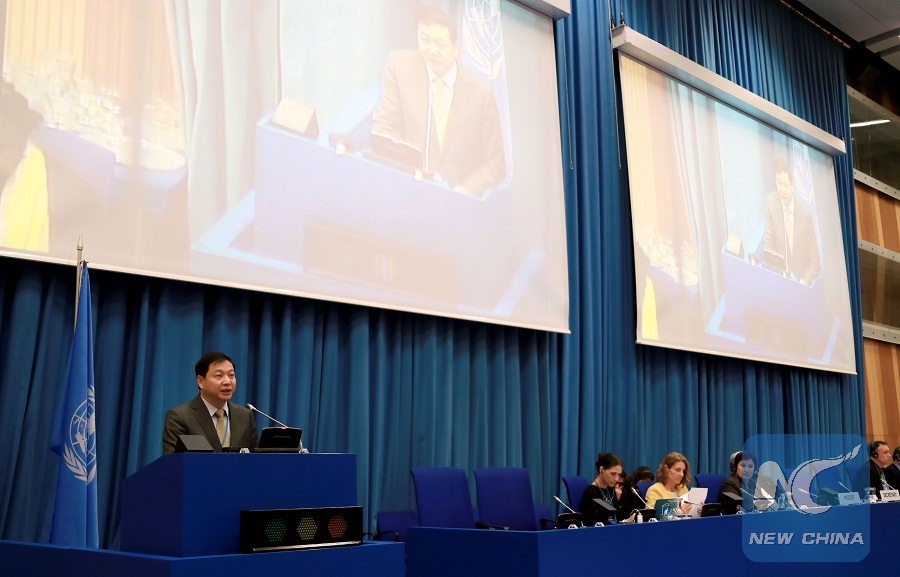
A bank clerk counts U.S. dollar banknotes at a bank in Linyi City, Shandong Province, China, on April 14, 2012. (Xinhua)
VIENNA, Nov. 12 (Xinhua) -- Western states have been passive in international efforts to recover assets secured through corruption and subsequently stashed abroad, thereby weakening the work of a United Nations (UN) anti-corruption conference that concluded here on Friday.
During the 7th Session of the Conference of the States Parties to the United Nations Convention against Corruption this week, a diplomatic battle between developing countries and some western states over the resolution on asset recovery took place at the body's headquarters in the Austrian capital.
Drafted by Nigeria, the resolution aimed to boost international cooperation in asset recovery, one of the key issues in the field of anti-corruption.
According to a joint research of the UN and World Bank Group (WBG), an estimated 20-40 billion U.S. dollars each year, more or less equivalent to 15-30 percent of official development assistance funds, is stolen from developing countries due to corruption.

China's Assistant Foreign Minister Qian Hongshan speaks during the Conference of the State Parties to the United Nations Convention Against Corruption in Vienna, Austria, on Nov. 6, 2017. The Chinese government is in favor of developing a guideline document to serve as a reference for states formulating a legal instrument dedicated to asset recovery, Qian Hongshan said here on Monday. (Xinhua/Pan Xu)
A mere 5 billion of such funds have been repatriated over the past 15 years, shining light on the difficulty in asset recovery.
However, a diplomat involved in drafting the resolution told Xinhua that some western states jointly boycotted a more detailed resolution, trying to set barriers for international cooperation in asset recovery.
Amended by some developed countries, the resolution is now weak and ambiguous and lacks substantive content to fully return stolen assets to their country of origin.
The diplomat, who wanted to remain anonymous, said the key reason for western countries are hindering the process is that there is a wide gap between stolen assets hidden in rich countries and those have been repatriated.
"Because it's not their economic and strategic interest (to return the money back)," said the diplomat. "This is theft."
"Lack of political will" was cited as a key impediment to the recovery of the proceeds of corruption, said the report made by the United Nations Office on Drugs and Crime and WBG.
The report listed 29 barriers for asset recovery, including legal barriers and operational barriers, making the issue much more complicated. The diplomat said the barriers could be easily set by developed countries.
"Russia's position on asset recovery is that international cooperation on this issue should be considerably strengthened. I think nobody can be satisfied with the current situation," Deputy Head of the Russian delegation Avetisyan Andrey told Xinhua.

